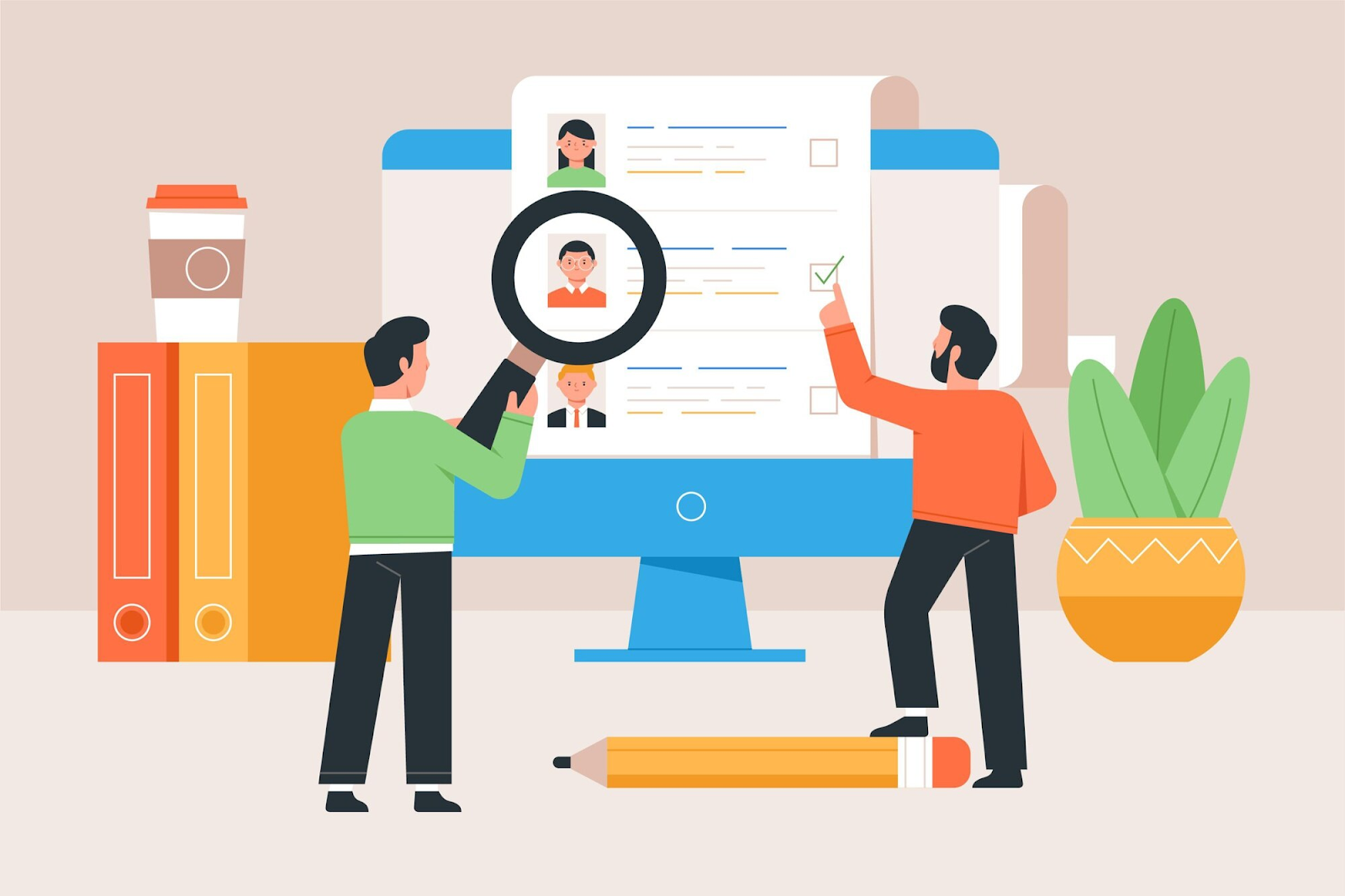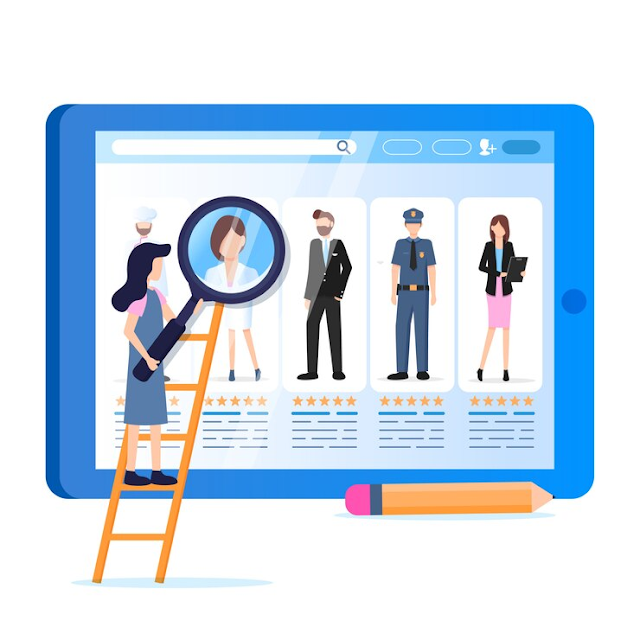How AI is Transforming Job Boards: The Future of Recruitment?
Artificial Intelligence (AI) is rapidly reshaping industries, and recruitment is no exception. As businesses embrace digital transformation, job boards—the platforms where employers and candidates connect—are undergoing significant changes, driven by AI technologies. From improving the efficiency of the hiring process to enhancing the experience for both job seekers and employers, AI is revolutionizing the recruitment landscape.
In this blog, we’ll explore how AI is transforming job boards and what the future holds for recruitment. We will cover the ways AI is used in job boards, the benefits for recruiters and job seekers, the challenges involved, and what the future might look like in this AI-driven hiring landscape.
The Role of AI in Job Boards
Job boards, traditionally, have functioned as a place for companies to post open positions and for candidates to search for those jobs. However, the process has often been time-consuming and inefficient. AI introduces automation, data-driven decision-making, and smarter algorithms, making the recruitment process much smoother and faster for both employers and job seekers.
Here are some ways AI is being integrated into job boards:
1. Resume Screening and Matching Algorithms
One of the most time-consuming parts of recruitment is sifting through resumes to find qualified candidates. AI-powered job boards can now automate this task by using sophisticated algorithms that screen resumes based on job descriptions, qualifications, and keywords. These algorithms can rank candidates, helping recruiters prioritize applicants who are the best match.
For example, AI tools like natural language processing (NLP) can analyze resumes and job descriptions, ensuring that the language, skills, and experience of the candidates align with what the employer is looking for. This is a major improvement over the traditional keyword-based search, where applicants might be ranked higher simply because they stuffed their resumes with keywords.
2. Personalized Job Recommendations
AI allows job boards to deliver personalized job recommendations to job seekers based on their profiles, past job searches, applications, and browsing behavior. Machine learning algorithms continuously learn about user preferences and refine job recommendations over time, helping candidates find more relevant opportunities faster.
Instead of sifting through thousands of listings, job seekers are presented with roles that closely match their qualifications, experience, and preferences. AI can also factor in location preferences, salary expectations, and even company culture compatibility, making the job search process far more efficient.
3. Chatbots for Candidate Engagement
AI-powered chatbots have become a valuable tool in recruitment, especially on job boards. These chatbots engage candidates in real time, answering questions about the job application process, guiding them through complex forms, and even conducting initial screenings. Chatbots can ask candidates pre-set questions to assess their suitability for a role, saving recruiters time by narrowing down the pool of applicants.
Additionally, chatbots provide 24/7 assistance, meaning that job seekers can interact with job boards at any time, significantly improving user experience.
4. Predictive Analytics for Talent Acquisition
AI also brings predictive analytics into the recruitment process. By analyzing historical data, trends, and patterns, AI can forecast future hiring needs, helping companies proactively manage their talent pipelines. For instance, predictive analytics can identify when a company is likely to need more staff based on industry trends, economic conditions, and business growth projections.
Job boards that integrate predictive analytics tools can offer valuable insights to both employers and job seekers. Employers can better plan their recruitment strategies, while job seekers gain an understanding of industries and roles with growing demand.
5. Reducing Bias in Recruitment
Unconscious bias has been a persistent issue in recruitment. AI has the potential to mitigate bias by ensuring that resumes are screened objectively based on qualifications and experience, rather than factors such as gender, race, or ethnicity. While AI is not completely immune to bias, well-designed AI systems can be trained to ignore irrelevant factors, ensuring a fairer hiring process.
For instance, AI-powered job boards can anonymize resumes, stripping away personal information such as name and gender, and focusing only on relevant qualifications and experience. This approach helps create a more equitable hiring process by giving candidates a fair chance based on merit alone.
6. Automated Job Posting
AI can also streamline the job posting process for employers. Through automation, AI can generate job descriptions, recommend the best channels for posting the job, and even suggest optimal times for posting based on audience engagement data. This reduces the administrative burden on hiring teams and ensures that job postings reach the most relevant candidates.
Benefits of AI for Recruiters and Employers
AI’s integration into job boards offers significant advantages for recruiters and employers:
1. Increased Efficiency
Recruiters spend a considerable amount of time screening candidates, scheduling interviews, and managing administrative tasks. AI automates many of these processes, allowing recruiters to focus on strategic decision-making rather than manual tasks. For example, AI can screen resumes, schedule interviews, and even handle initial candidate assessments, speeding up the recruitment process.
2. Better Candidate Matching
AI-driven job boards improve the quality of candidate matching. By using data and algorithms to match job seekers with positions that align with their skills, experience, and preferences, AI ensures that recruiters receive more qualified applicants. This leads to higher success rates in hiring and reduces the time-to-hire.
3. Cost Savings
The use of AI reduces the need for manual intervention in recruitment processes, leading to cost savings. By automating tasks such as resume screening and job posting, companies can reduce the time and resources spent on recruitment. This is particularly beneficial for small and medium-sized businesses with limited HR resources.
4. Improved Candidate Experience
AI enhances the candidate experience by providing personalized job recommendations, faster response times, and more efficient communication. Candidates appreciate the streamlined process, as they no longer need to apply for jobs that are not relevant to their skills. Additionally, AI-powered chatbots ensure that candidates can engage with the recruitment process at their convenience, improving satisfaction.
Benefits of AI for Job Seekers
AI also offers several advantages for job seekers:
1. Personalized Job Searches
Job seekers benefit from personalized job recommendations, which are tailored to their unique profiles. Rather than browsing through countless irrelevant listings, AI ensures that job seekers see opportunities that match their skills, qualifications, and preferences, saving them time and effort.
2. Greater Transparency
AI can provide candidates with valuable insights into the recruitment process. For example, some job boards offer tools that show candidates how their applications are progressing, whether they meet the criteria for a job, or how competitive a position is. This transparency reduces the frustration that job seekers often feel when they don’t receive updates or feedback on their applications.
3. Enhanced Skills Matching
Job seekers may not always know how their skills align with certain job roles. AI can analyze a candidate’s profile and suggest jobs that they may not have considered but are well-suited for based on their experience and qualifications. This opens up new career possibilities and helps candidates explore different industries or roles.
Challenges of AI in Job Boards
While AI offers many benefits, there are challenges to its adoption in recruitment:
1. Data Privacy and Security
AI requires access to vast amounts of data, including personal information from job seekers. Ensuring that this data is securely stored and used ethically is critical. Job boards and recruitment platforms must adhere to data protection regulations and safeguard user information to prevent breaches.
2. Potential for Algorithmic Bias
While AI has the potential to reduce bias, poorly designed algorithms can inadvertently perpetuate bias if they are trained on biased data. It is essential for companies developing AI recruitment tools to ensure that their algorithms are fair and inclusive. Continuous monitoring and auditing of AI systems are necessary to mitigate this risk.
3. Human Touch in Recruitment
AI can automate many parts of the recruitment process, but it cannot replace the human touch entirely. Building relationships with candidates, assessing cultural fit, and making nuanced hiring decisions still require human judgment. Recruitment teams must strike the right balance between AI automation and human intervention.
The Future of AI in Recruitment
As AI continues to advance, we can expect even more significant transformations in the job board and recruitment landscape. Here are some future trends to watch:
1. AI-Driven Talent Marketplaces
AI could evolve job boards into fully AI-driven talent marketplaces, where candidates and employers are matched based on real-time data and sophisticated algorithms. These marketplaces will enable dynamic matching, continuous learning, and instant feedback, making the recruitment process more agile and responsive to market demands.
2. Skill-Based Hiring
With the rise of AI, skill-based hiring will become more prominent. Instead of relying on traditional credentials like degrees and job titles, AI will focus on matching candidates based on their skills and competencies. This will democratize the job market, offering more opportunities to candidates with non-traditional backgrounds.
3. Hyper-Personalized Recruitment
AI will make recruitment hyper-personalized, with job seekers receiving job opportunities and career guidance that is uniquely tailored to their goals, aspirations, and skill sets. Employers, on the other hand, will have access to AI tools that provide in-depth insights into candidates’ potential, cultural fit, and long-term career trajectory.
Conclusion
AI is revolutionizing job boards, making the recruitment process more efficient, personalized, and fair. By leveraging AI technologies for job boards such as resume screening, predictive analytics, and chatbots, job boards can offer a better experience for both recruiters and job seekers. While challenges remain, the future of recruitment is undoubtedly AI-driven, and job boards that embrace these innovations will be well-positioned to thrive in the evolving hiring landscape.




Comments
Post a Comment